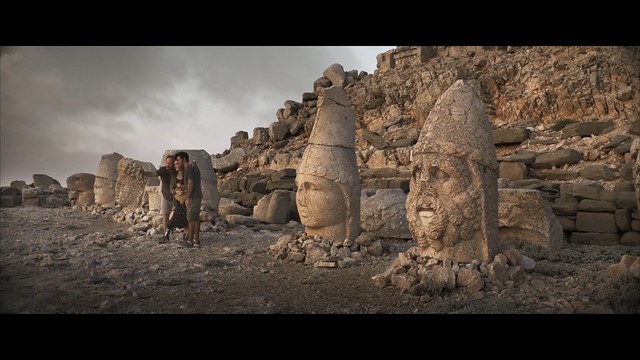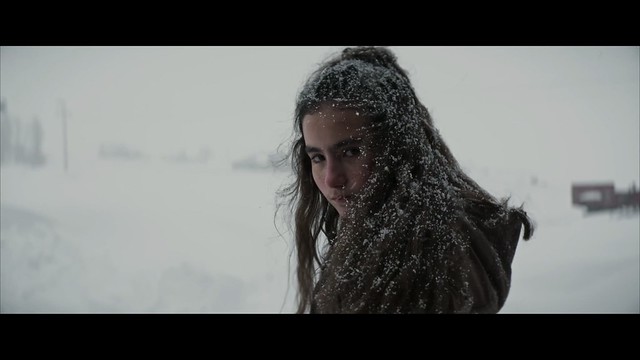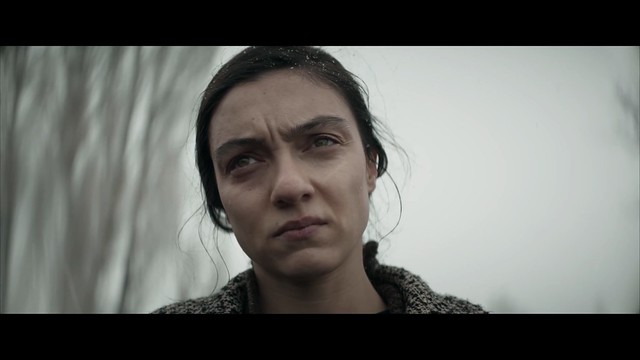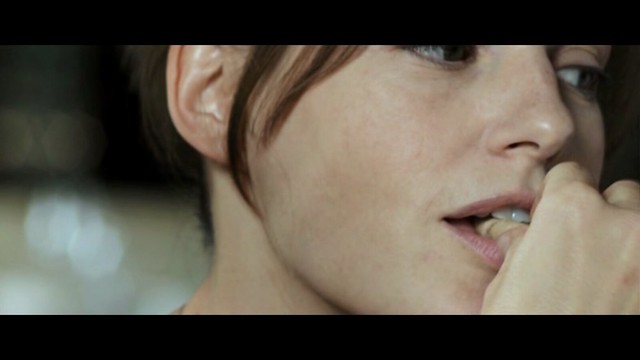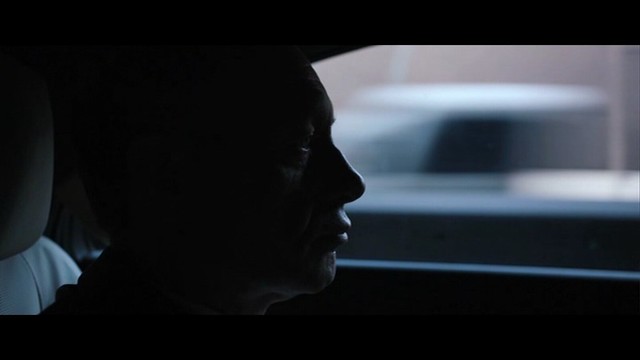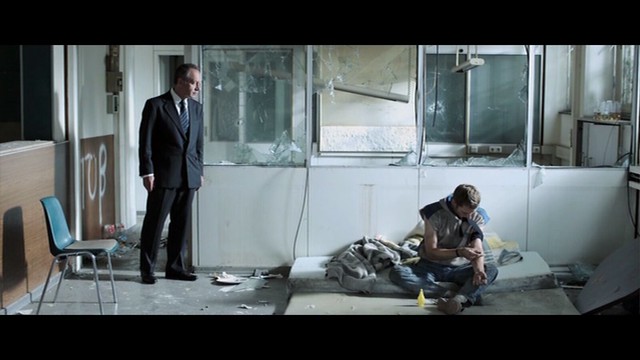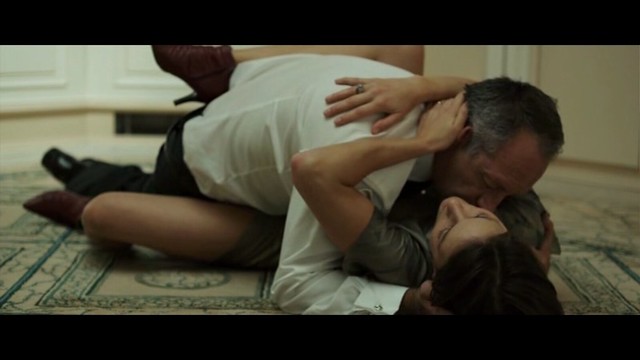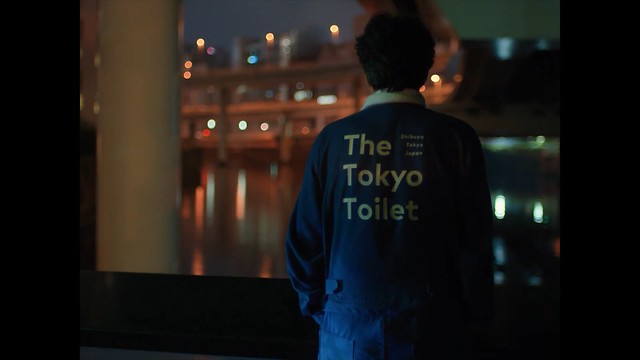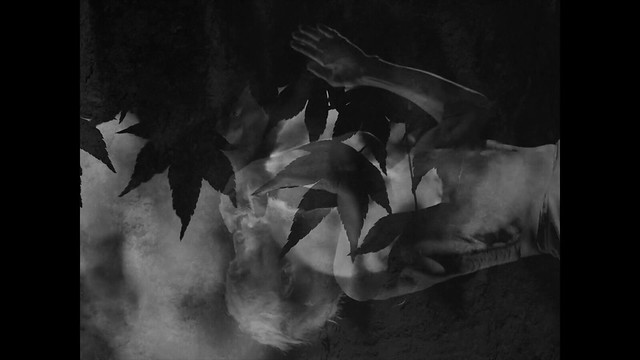This year's opening night film is the critical and box office hit The Animal Kingdom starring Romain Duris, Adèle Axarchopoulos. Others in the lineup includes Little Girl Blue with Marion Cotillard, Book of Solutions, Michel Gondry's new film in 8 years and loads of films by talented newcomers - Ama Gloria by Marie Amachoukeli, Banel & Adama by Ramata-Toulaye Sy and Nora El Hourch's Sisterhood (HLM Pussy).
With the recent critical success of Justine Triet's Anatomy of a Fall and Tran Anh Hung's Taste of Things, French cinema is having a moment with American Audiences. As always, Rendez-Vous provides the glimpse of what's hot in French cinema here and now.
Rendez-Vous with French Cinema is sponsored by Villa Albertine, TV5 Monde, Maison Occitanie, FIAF, The Plaza, New York
Little Girl Blue - Achache
 Filmmaker Mona Achache recreates her mother Carole through Marion Cotillard in understanding her suicide a fascinating docu-drama Little Girl Blue. In the beginning of the film, Achache hands her mother's jeans, t shirt, blue cardigan, glasses and a perfume to Cotillard who accepts quietly and transforms into Carole, a writer, photographer who left mountains of journals, photographs and audio recordings behind.
Filmmaker Mona Achache recreates her mother Carole through Marion Cotillard in understanding her suicide a fascinating docu-drama Little Girl Blue. In the beginning of the film, Achache hands her mother's jeans, t shirt, blue cardigan, glasses and a perfume to Cotillard who accepts quietly and transforms into Carole, a writer, photographer who left mountains of journals, photographs and audio recordings behind.
Achache, uses a massive studio wall space to painstakingly catalog her mother's life, like a crime investigator. Carole, who herself had tumultuous relationship with her prolific writer mother, Monique, who hung out with other literary giants as Jean Genet, Maguerite Duras and William Faulkner in the 50s Paris.
The film tells the abuse perpetuated by men (all coincidentally named Jean/Juan) and how it reverberates through generations. A little heavy on the use of stock footage to drive home the points, but Cotillard's committed performance on screen, as she fluffs the lines and retries under her breath are all documented as the process. It's a fascinating, personal art therapy of a film.
On the Adamant - Philibert
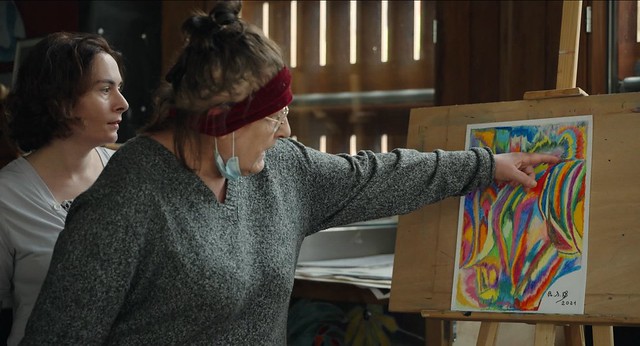 To Be and To Have director Nicolas Philibert's points his camera to the Adamant, a psychiatric daycare center for adults on the embankment of Seine. This floating, two story wooden structure is a safe haven for many people who struggle with mental illness. Philibert gently documents its patients and staff as they conduct series of workshops - music, painting, book keeping, jam making, etc. As one of the participants says, it's all about having someone to listen to their anxiety and neurosis.
To Be and To Have director Nicolas Philibert's points his camera to the Adamant, a psychiatric daycare center for adults on the embankment of Seine. This floating, two story wooden structure is a safe haven for many people who struggle with mental illness. Philibert gently documents its patients and staff as they conduct series of workshops - music, painting, book keeping, jam making, etc. As one of the participants says, it's all about having someone to listen to their anxiety and neurosis.
Philibert, with his infinite patience and compassion, listens to these people without judgment and shows how each individual is talented and unique in his/her own way in the process.
On the Adamant softens its social stigma placed on mental illness.The Adamant is a project of St Maurice Hospital and all the patients are under some medication to control their conditions - many hear voices or suffer from hallucinations. By providing positive, calm environment, the project has been successfully operating since 2010. There's singing, there is poetry, there is traveling film screenings, all in the backdrop of the lively and romantic Seine. A real gem.
The Book of Solutions - Gondry
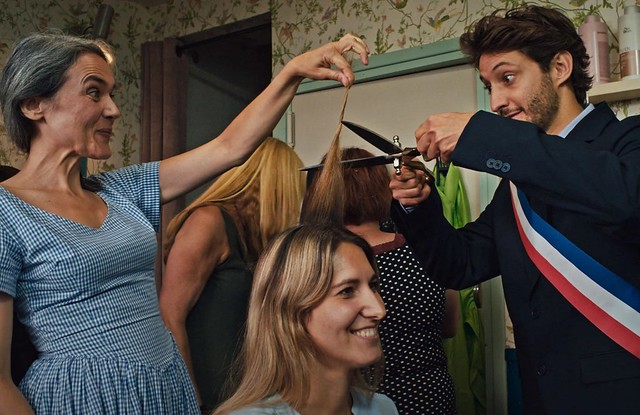 A typical Michel Gondry manchild protagonist is perfectly played by Pierre Niney. Niney is Marc, a film director first seen fleeing the film executive's board meeting after they watch the footage and shut down his project. He drives to his childhood village in the rural home with his producer, editor and assistant in tow, to working on editing his 4 hour long, incomprehensible film. He flushes away all his anti-depressants against the advice from his beloved aunt Denise, in order to free his creative energy and gets sidetracked by everything around him, much to the dismay of all his crew members.
A typical Michel Gondry manchild protagonist is perfectly played by Pierre Niney. Niney is Marc, a film director first seen fleeing the film executive's board meeting after they watch the footage and shut down his project. He drives to his childhood village in the rural home with his producer, editor and assistant in tow, to working on editing his 4 hour long, incomprehensible film. He flushes away all his anti-depressants against the advice from his beloved aunt Denise, in order to free his creative energy and gets sidetracked by everything around him, much to the dismay of all his crew members. As always, Gondry puts his chaotic creative process on display while keeping it close to his heart with a film director as the protagonist. Not as visually creative as his earlier films but it has that madcap Gondry energy that is quite infectious.


